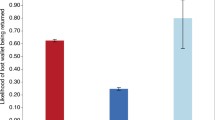Abstract
Since the 1980s, several polls in Russia have included questions about happiness. The responses to these questions were quite similar. Average happiness was low in comparison to other nations and declined over time. Ten years after the fall of communism Russians are less happy than during the communist period.
There are doubts about the validity of these self-reports. One source of doubt is that these data may not reflect Russians' self-appraisals adequately, due to distortions in translation and a differential response bias. A second misgiving is that true discontent could be rather superficial, and be largely due to unfavorable comparison with the West and folklore of negativism.
These qualms are checked in this article. It appears that the Russians are as unhappy as they say they are, and that they have good reasons to be so. The current unhappiness is not due to the Russian national character, but has more to do with the troublesome transitions taking place in Russian society.
Similar content being viewed by others
REFERENCES
Allenbacher Jahrbuch der demoscopie, 1993–1997, K.G. Saur,Möunschen, Germany.
Andreenkova, A. and A.C. Scherpenzeel: 1996, ‘Satisfaction in Russia’, in Saris et al. (eds.), A comparative study of satisfaction with life in Europe (Eöotvöos, University Press, Budapest, Hungary), pp. 201–221.
Bradburn, N.M.: 1969, The structure of psychological well-being (Aldine, Chicago, USA).
Bulmahn, T.: 2000, ‘Modernity and happiness, the case of Germany’, Journal Of Happiness Studies, Vol. 2, pp. 375–400
Cantril, H.: 1965, The pattern of human concern (Rutgers University Press, USA).
Deeg, D. and R. van Zonneveld: 1989,‘Does happiness lengthen life?’, in R. Veenhoven (ed.), How Harmfull is Happiness? Consequences of Enjoying Life or Not (Universitaire Pers, Rotterdam). pp. 29–43.
Glatzer, W. and W. Zapf: 1984, Lebensqualitöat in der Bundesrepublik (Campus, Frankfurt am Main, Germany).
Habich, R., H-H. Noll and W. Zapf: ‘Subjectives Wohlbefinden in Ostdeutschland nöahert sich westdeutschem Niveau’, ISI bulletin, nr 22, pp. 1–6.
Inglehart, R.: 1990, Culture shift in advanced industrial society (Princeton University Press, USA).
Inglehart, R. and H-D. Klingemann: 2000, ‘Genes, culture, democracy and happiness’, in E. Diener and E.M. Suh (eds.), Culture and subjective well-being (MIT Press, Boston), pp. 165–184.
Inglehart, R.: 1994, Dataset World Values Surveys 1980–1990 (International Consortium for Political Science Research: ICPSR file 6160).
Kunin, T.: 1995, ‘Construction of a new type of attitude measure’, Personal Psychology, Vol. 8, pp. 65–78.
Saris,W.E., R.Veenhoven, A.C. Scherpenzeel and B. Bunting (eds.): 1996, A comparative study of satisfaction with life in Europe (Eöotvöos University Press, Budapest, Hungary).
Saris, W.E. and A. Andreenkova: 2001, Journal of Happiness Studies, Vol. 2, pp. 95–109.
Veenhoven, R.: 1984, Conditions of happiness (Kluwer Academic, Dordrecht).
Veenhoven, R.: 1992, Happiness in nations (RISBO, Erasmus University Rotterdam, Netherlands).
Veenhoven, R.: 1994, ‘Is happiness a trait? Tests of the theory that a better society does not make people any happier’, Social Indicators Research, Vol. 32, pp. 101–160.
Veenhoven, R.: 1996, ‘Happy life-expectancy, a comprehensive measure of qualityof-life in nations’, Social Indicators Research, Vol. 39, pp. 1–58.
Veenhoven, R.: 1998, ‘Vergelijken van geluk in landen’, Sociale Wetenschappen, Vol. 42, pp. 58–84.
Veenhoven, R.: 2000,World Database of happiness Available: http://www.eur.nl/fsw/ research/happiness
Author information
Authors and Affiliations
Corresponding author
Rights and permissions
About this article
Cite this article
Veenhoven, R. Are the Russians as Unhappy as they say they are?. Journal of Happiness Studies 2, 111–136 (2001). https://doi.org/10.1023/A:1011587828593
Issue Date:
DOI: https://doi.org/10.1023/A:1011587828593




